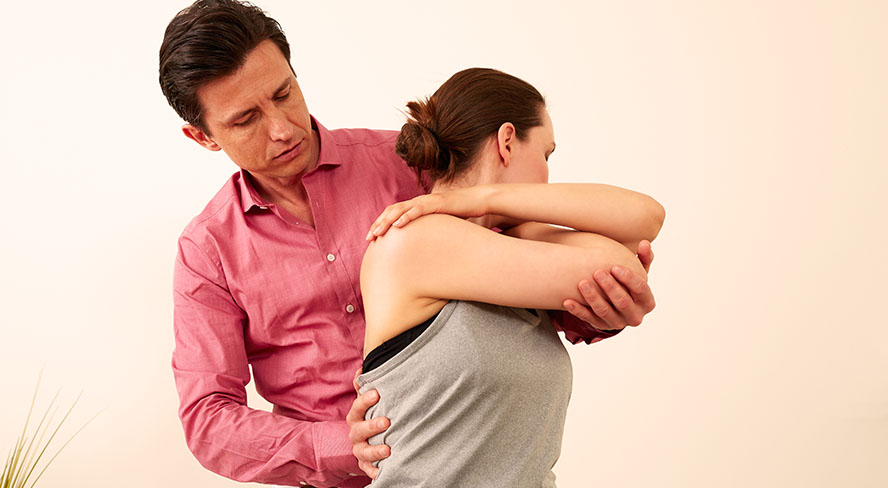Ow! Is that your head hurting? Have you been in an accident that hit your head bad? Well, don’t sleep yet, because you might have symptoms of post-traumatic hypersomnia and you should visit a sleep center Damascus MD. Here is everything you need to know about it.
Why Do I Feel Too Sleepy After A Head Injury?
Your brain is a very complex and unique organ and it controls a lot of things. When you sleep at night, the brain can or cannot shut down. You might feel that you’re thinking things but it’s your brain working.
However, when the brain goes through an injury, it can have grave impacts on your sleep. You will suddenly become more tired, you will feel the need to sleep constantly and you will also suffer from severe headaches.
When you suffer from a traumatic brain injury, you will:
- Feel very disoriented or confused
- Speak more slowly and you’ll think a lot before speaking, leading to pauses
- Feel tired and exhausted most of the time
- Sleep a lot more than usual
Your brain uses about 20% of the total body’s energy, so it is sometimes normal for people suffering from a traumatic brain injury to sleep a lot. When you sleep, your hair is also at rest and your body heals from a lot of things, so don’t be too alarmed if you’re sleeping too much after a brain injury. It is only better for you in the long run and you feel better in no time.
What Is Post-Traumatic Hypersomnia?
There’s insomnia in which you can’t sleep and then there is hypersomnia. Hypersomnia is the opposite of insomnia in which the person affected sleeps a lot. Like, alarmingly long hours. If you see that you’re sleeping more than 8 hours a day and you still feel tired and fatigued then there is something wrong.
While it has been established that sleeping more after a traumatic brain injury is common and okay in general, there is a fine line between this and post-traumatic hypersomnia and it can get crossed easily. With brain injuries, your sleep can get disrupted and you’ll either fall asleep too fast or you won’t at all. Both are common after a head injury, but we will talk about the former here.
Post-traumatic hypersomnia affects the quality of sleep because even though you’re sleeping, it doesn’t really count as that and your body is still tired as if you never really went to sleep in the first place.
While how sleep and brain injuries are related is still in the dark, it is safe to say that brain injuries can mess with the circadian rhythm a lot and this in turn, can either cause you to sleep a lot or have disrupted sleep throughout the night and if you don’t sleep well, then you can’t heal, which is bad.
Not sleeping adequately, even when you’re suffering from post-traumatic hypersomnia, can lead to more headaches and your brain will feel like mush if you don’t take care of this issue right away. You will also feel very jumpy and anxious and that is not something you have to deal with when you’re already in the throes of an injury that is quite literally splitting your head open and you’re all confused and dazed. This is the worst a person can feel.
Symptoms Of Post-Traumatic Hypersomnia
So, now that you know what post-traumatic hypersomnia is, here are some symptoms, because it is really important that you know what you’re dealing with is a sleep issue and not just your body’s natural reaction. Visit a sleep clinic Bethesda if you notice these symptoms.
- First of all, you will feel extremely sleepy. You will want to sleep all the time, no matter what time of the day it is.
- You will feel tired when you wake up. You will feel as though you haven’t slept at all.
- The sleep duration will be more than 8 hours. Some people with post-traumatic hypersomnia can sleep up to 12 hours a day, which is insane.
- You will feel shaky and anxious. You will be on edge and no matter what you do, you just can’t calm down.
- You will have little to no appetite at all, which is alarming and not a symptom of traumatic brain injury at all. This is something that you’ll only feel in hypersomnia.
- You will be very dazed and that is mainly because of the lack of sleep. You’ll have a hard time focusing on things.
- You won’t feel like a headache is coming on, but you will feel your eyes drooping and that is a clear sign that you are suffering from hypersomnia. You’re sleeping, but it’s not leading to you feeling well-rested.
- You will be very restless. This can either occur while you’re sleeping or it can occur when you’re awake. You will just be very jumpy and you’ll move your limbs a lot, which can be uncomfortable and you won’t find a comfortable position to sleep in either.
- Daytime naps will be the norm and you’ll fall asleep even when you’re standing or sitting down, which can be quite dangerous if you think about it.
Treating And Managing Post-Traumatic Hypersomnia
Sleeping after a head injury and post-traumatic hypersomnia are two completely different things and you might have an understanding by now as to how the two can be different.
Understanding The Symptoms
Well, aside from understanding the symptoms and how these two conditions work, it is important to get medical attention regardless and for that, you will need to see a doctor.
Whether it is a brain injury or you have predisposing sleep issues, it is important to get a medical professional’s opinion because they will know what to do.
If you have suffered from a bad head injury and your brain is affected, you will need to get a CT or MRI scan done to figure out the damage the injury has inflicted on your brain.
If you have sleep issues along with a brain injury, then you will get referred to a sleep doctor. They will conduct a sleep study in order to figure out the problem and then a possible solution to tackle all the issues.
In all honesty, brain disorders do disrupt your sleep, but it is the job of a sleep doctor to figure out what is causing problems the most.
Management
As far as management is concerned, here are some things you want to do:
If you have had a bad accident and you’re suffering from a brain injury, then you want someone to sleep with you, just in case you wake up in the middle of the night disoriented and you can’t see or register things.
When you sleep, make sure that you wake up in between and do some mental and thinking exercises. Try slow counting, alphabets, etc. to refresh your brain periodically.
Conclusion
Sleep issues after hitting your head can be really common and they can also turn dangerous in some time, which is why you want to see a sleep specialist Frederick immediately.







